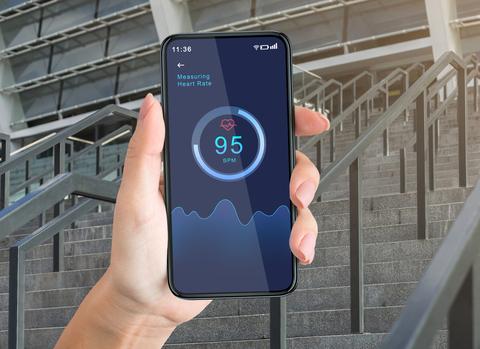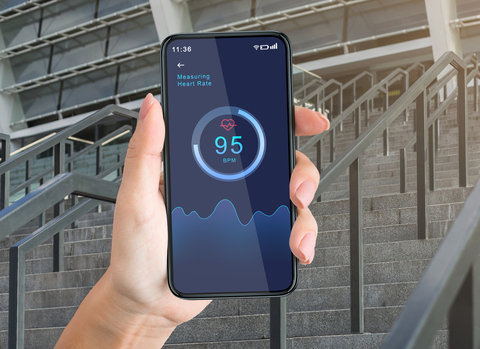

The website will forever be the dream technology tool that transitioned print and multimedia libraries into digital formats, served as the electronic face for brands and organizations, and offered e-commerce solutions that revolutionized the retail industry. Whether the website will be functional in another few decades is questionable – there may always be the later-generation groupies who prefers browsing a website on a laptop or PC than downloading an app on a handheld device (reportedly, 51percent of smart phone users in America do not download apps).
While websites have served a purpose, the explosion of apps has been one of the boldest digital distribution systems to fly off the tech market. Statisca 2020 reports approximately five million apps available on the market from Google Play, the Apple App Store the Windows Store and the Amazon Appstore. The four are expected to reach over $500 million in subscription sales by 2023, more than double the revenue mark of 2019. Additionally, there are nearly 600 million app downloads daily.
The reality is that multi-functional apps with the ability to feature voice search, language translation, GPS, geofencing, augmented reality, cameras, bar scanners, social integration tools, and e-commerce /payment integration options will transform storefronts, stadium and arena concourses, gyms, supermarkets, street corners, subways, automobile dashboards, tablets, mobile phones and wearable technology into hot zones for accessing a virtual personal assistant almost anywhere at any time.
Apps tailored for the sports industry and sport fan are booming, much in the way that esports has exploded on all fronts. While there is some crossover, the sports app industry can be categorized into eight areas according to functionality.
Jumping on the App Train
As prevalent or as necessary websites have become for sport organizations and businesses, so too will be the mobile app or app experience. Currently, there are more organizations and companies, especially small firms, that do not have an app connected to their business or event. Managers and executives generally perceive the greatest barrier to implementing a business app is the lack of information technology (IT), knowledge and developer skills. While the obvious solution is to outsource the job of designing and building a multi-experience app to a tech wizard, the reality is that it can be cost-prohibitive to hire a third party if budgetary dollars have not been allocated.
Any business or event operating without an app should first and foremost learn about the functions and usage of apps in their industry (e.g., research competitors, read articles, talk to colleagues, attend workshops or symposiums, etc.). Once the research has been adequately completed, the buy-in for the value of an app should be fairly obvious. A well-designed app with the appropriate content and featuring efficiency, speed, reliable access and low user-orientation will potentially influence consumer behavior to a greater degree than a website which serves primarily as a repository of information.
Apps are great for personalizing the customer experience, storing personal preferences, creating a greater user interface, and for pushing selective notifications without being overly intrusive. It’s more fun and more convenient to tap, swipe, pull, push or drag content across a screen than it is to click back and forth multiple times on a keyboard, but it is still a matter of personal preference. The app, however, is not the end, all for meeting customer or client needs – an estimated 21percent of users abandon an app after the initial download and usage.
Adopt an App Template or Build a Custom App?
The basic choice for sport organizations without an app is to either build a customized program from scratch or tailor an existing app on the market. There is a reason Nike, Adidas, Wimbledon, US Open, Masters and every professional sport team made the choice to invest heavily in designing their own custom app from scratch. While costly, creating a custom app from scratch provides the greatest branding advantage as a direct marketing channel. High investment usually results in minimizing security breaches, protecting data and ensuring constant convenience and functionality for end users. These enterprises have the resources to employ their own app guru (or a small team of coding experts) or to contract with a company specializing in app development and maintenance.
However, even small business owners and operators in the sport and event industry can implement a mobile app for a much less costly investment. It is understandable that while apps are praised for providing solutions for customers and clients, many event and business owners often are in search of their own solution for making an initial entry into the app domain. A lack of IT, skill/knowledge in developing apps and (of course) the all-important cost should not prohibit the acquisition or building of an app. Every business has the option for a relatively less costly venture to adopt a native app correlating with a template that can be tailored to fit business needs.
There is an ever-increasing number of programs with varying sophistication and cost to assist anyone ready to build their own app or contract with someone to assume the responsibility. It is relatively easy to purchase a template or access an app builder program with customizable features. Some of the app builders on the market with a “free” version for users with no coding experience include AppyPie, AppSheet, AppsMoment, and Adola.
Several app builders that typically offer with a free trial but charge a monthly fee (ranging from $3 to over $1000) include AppInstitute, Yapp, Bizness Apps, AppMaker Store, AppMachine and Snappii. There are templates on the market such as CrowdCompass and TeamSnap which are mobile apps specifically for sports and events. These apps can be tailored to an organization and provide team management tools such as scheduling, registering participants, credentialing officials, providing real-time results or hosting a social wall for athletes, spectators, parents, etc.
The challenge is not only the issues in the initial development, but in the maintenance and the effort to acquire and onboard users. User engagement and retention is yet another issue sport organizations and events will need to address in planning to adopt their first mobile app. The first step, however, is hopping to it and acquiring knowledge of the world of apps and researching what competitors are doing for clients, customers, and fans. Every good coach and sport administrator knows the value of planning and there is no time like the present to start the process of familiarizing yourself with the app world before succumbing to the fate of the boiled frog. SDM

